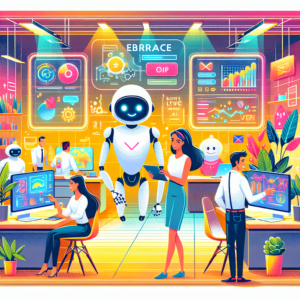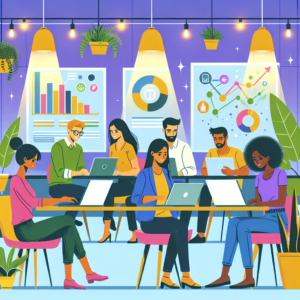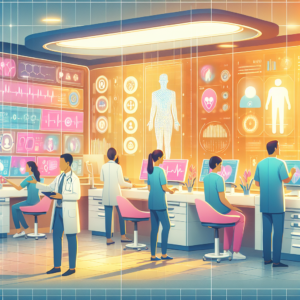Based on the search results and the blog outline, I’ll craft an SEO-optimized blog post about AI’s Impact on Jobs and Economy.
AI’s Transformative Journey: Navigating the Future of Jobs and Economy
Introduction: The AI Revolution Begins
Imagine a world where your morning coffee is brewed by a robot, your work emails are drafted by an AI assistant, and your career path looks completely different from what you planned. Welcome to the dawn of the AI era – a time of unprecedented technological transformation that’s reshaping jobs, industries, and the global economy faster than you can say “machine learning.”
Artificial Intelligence (AI) is no longer just a futuristic concept; it’s a present-day reality fundamentally changing how we work, create, and think about employment. But before we dive into the nitty-gritty, let’s take a step back and understand what we’re really dealing with.
The Evolution of AI: From Science Fiction to Economic Powerhouse
AI has come a long way from its humble beginnings. What once seemed like a far-fetched dream in science fiction movies is now a tangible force driving innovation across multiple sectors. Here’s a quick snapshot of AI’s incredible journey:
- 1950s: The concept of artificial intelligence first emerges
- 1980s-90s: Early machine learning algorithms develop
- 2010s: Deep learning and neural networks breakthrough
- 2024: Generative AI and large language models transform industries
The Current AI Landscape: By the Numbers
Recent statistics paint a fascinating picture of AI’s economic impact:
- AI is projected to contribute $15.7 trillion to the global economy by 2030
- 63% of organizations plan to adopt AI globally within the next three years
- The AI market is expected to grow by 120% year-over-year
Job Market Transformation: The AI Effect
Let’s address the elephant in the room: Will AI steal our jobs? The answer is more nuanced than a simple yes or no. Recent research reveals some eye-opening insights:
Job Displacement and Creation
- Approximately 300 million jobs could be impacted by AI
- By 2030, an estimated 14% of workers will need to change careers
- Importantly, AI is expected to create 97 million new jobs while eliminating 85 million
Industries Most Affected
- Administrative and secretarial roles
- Customer service
- Data entry and analysis
- Manufacturing
- Transportation and logistics
Economic Implications: Opportunities and Challenges
AI isn’t just changing jobs; it’s revolutionizing entire economic structures. Here are the key economic implications:
Productivity Boost
- AI can help workers complete tasks 126% faster
- 90% of workers report AI helps them save time
- Increased efficiency could lead to significant economic growth
Potential Challenges
- Income inequality
- Skill gap requirements
- Need for continuous learning and adaptation
Addressing the AI Challenge: Strategies for Success
So, how can individuals and organizations prepare for this AI-driven future?
For Individuals
- Embrace continuous learning
- Develop AI-complementary skills
- Stay adaptable and open to technological changes
For Organizations
- Invest in employee reskilling
- Create ethical AI implementation strategies
- Foster a culture of innovation and adaptability
The Future of Work: A Collaborative Vision
The most exciting aspect of AI isn’t replacement – it’s collaboration. The future of work isn’t human versus machine, but human and machine working together to achieve extraordinary results.
Conclusion: Embracing the AI-Powered Future
As we stand on the brink of this technological revolution, one thing is clear: AI will fundamentally reshape our economic landscape. But rather than fear this change, we should approach it with curiosity, preparedness, and a commitment to ethical innovation.
The AI journey has just begun, and the most exciting chapters are yet to be written. Are you ready to be part of this transformative story?
Sources
- World Economic Forum AI Employment Report 2024
- McKinsey Global Institute AI Research
- PwC Future of Work Study
Keywords: AI jobs, economic impact of AI, future of work, artificial intelligence, job market transformation





